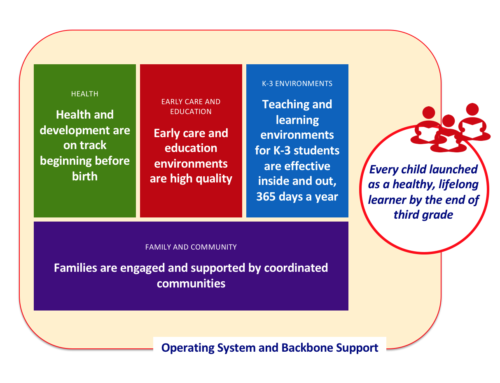If you missed Henrietta Zalkind’s column in the Rocky Mount Telegram on growing healthier kids and building a healthier community, please check it out! Either click on this link to connect to the article or read it below.
Henrietta Zalkind: Moving toward health
One thing is certain. Change is constant.
Whether it is in the political landscape, school system, your own family, job or in the community – things are constantly changing that impact the lives of young children. It’s how we deal with change that matters most. It’s our ability to be resilient or, in other words, to bounce back from all of life’s changes and challenges that enables us to help our children be successful and healthy, lifelong learners.
So, as we all start the transition of getting back to school, I want to take this opportunity to remind us all that the single biggest predictor of children’s success in school is social and emotional health. Big words, but here are my top three concrete suggestions that we can do right now in order to build a healthier community for us all.
Take It Outside and Play: What better way to be physically active, burn energy, soak in some vitamin D and get fresh air than to go outside and play with your children?
As a caregiver, you can make physical activity fun for your whole family. Adults need to have fun and play too in order to release stress from long days. Get involved with your children-instead of sitting on the park bench or the sidelines walk, run and play with your children; your children will enjoy having you play with them and you will probably find that you will have fun, too.
If you are looking for fun places to play with your children, DEPC has recently updated the Places to Grow and Play Map, which highlights community parks, public gardens, walking trails and the newly constructed outdoor learning environments at five elementary schools: GW Bullock, Williford, Baskerville, Coker-Wimberly and Carver. Some of the highlights of these new outdoor learning environments include: natural habitats for exploring, raised flower beds, an amphitheater, several sports courts, life size outdoor board games such as checkers, a butterfly garden, taste and smell gardens, walking trails and more.
These new outdoor learning environments are open to the public during non-school daylight hours. So, gather your friends, neighbors, your All Pro Dads group and go explore a new park, trail or outdoor learning environment.
Build Your Knowledge of Parenting and Child Development: I don’t know anyone who would say parenting is easy. However, the more you know about child development the more enjoyable your job as a parent can be.
When you become a parent, you’re expected to be an instant expert. All parents struggle from time to time and need support and that’s where the Triple P – Positive Parenting Program can help. From toddler tantrums to a teenager’s defiance, from bedtime dramas to outright disobedience, Triple P can help you sort through the common parenting issues that affect all families.
We all want our children to develop healthy social skills such as sharing, waiting, taking turns, being a good friend and learning how to solve conflicts as these are the basic skills that help our children become successful in school. Just as important is the development of your child’s social skills is the development of their emotional skills.
Did you know that when we are born we are hard wired for certain emotions such as sadness, joy, anger, surprise and fear? In other words, we don’t need to be taught what these emotions mean or how they feel.
However, on the flip side there are many emotions that we all have to learn or be taught in order to understand and be able to express appropriately. Some examples of emotions that need to be taught are sympathy, patience, forgiveness, cooperation, gratitude and compassion. One of the best ways to teach our children about these emotions is by modeling healthy emotional habits and behaviors ourselves.
There are many resources available to parents in our community. Call a Family First Counselor at DEPC to join an upcoming Triple P Discussion Group or seminar or to set up an individual parent consultation based on the specific needs of your family.
Information about these resources and how to register can be found on DEPC’s website at www.depc.org. Remember, children don’t come with a “how to manual” and it is OK to ask for help.
Commit to Eating Better and Eating Together: You are the most important influence on your child and meal times are a great way to connect as a family. As our lives have become so fast paced we have gotten away from not only eating healthy but eating together as a family.
We have gotten away from using our meal times as a time to connect, enjoy and learn about each other’s days. Imagine how much we could learn about our children during simple meal times together…what their favorite activity of the day was, who they played with, what may be bothering them or what is on their minds. How excited would our children be to have our undivided attention during a family meal!
How do you go about creating family mealtime in your busy schedule? To start, just pick one night of the week that you can have a technology-free family meal.
Get all members of your family involved in preparing the meal with some of the following suggestions: plan your grocery list together, go grocery shopping together, help prepare food together, try one new healthy food each week. For more information on how to help your family eat better and eat together visit these websites:www.ChooseMyPlate.gov or www.eatsmartmovemornc.com
Finally, thanks to a new grant from U.S. Agriculture Department, DEPC will have new resources this fall to provide educational programs to show families how to make healthier food choices at home, at school and at child care. Please visit our new web site at www.depc.org for the most up to date information or call our Family First line at 252-985-4300 to help all children be happy, healthy and hopeful.





